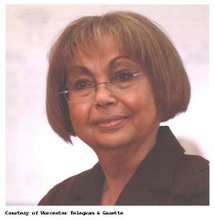During two weeks in July 2006, a gathering of scholars from African and American universities took place at Clark University as part of the first African Outreach Program, sponsored by The Institute for Economic Policy Studies. The Conference theme was “Democracy, Liberty and Development”. One of the highlights of the Conference was the keynote speech delivered on July 20 by Professor Joseph Pare, the Minister of Education in Burkina Faso, West Africa. Appearing before an audience made exclusively of University teachers, administrators and students, Minister Pare’s talk was devoted to the role of the African University in the process of development.
Minister Pare’s talk was enlightening not only because of what he said but also for what he did not. He eloquently identified the problems facing the African University drawing on his experience as a teacher, vice president and president of Ouagadougou University before being elevated to the post of the Minister of Higher Education of Burkina Faso.
In most of the African countries higher education institutions (elementary and secondary as well) were created, administered and shaped during colonial rules. As such, the African University, in the words of Minister Pare, “was like a house with a roof which is not adapted to the house. To make the roof fit with the house, changes have to be made to the plans.”
Of course, plans can be changed, and a new structure can be erected. But “how and by whom?”. Viewed in the context of economic development, this is precisely the question that has baffled development economists for more than a quarter of a century. Unlike many others, Minister Pare did not dwell on the colonial past neither did he absolve his countrymen from the lack of progress in securing better living standards for the population.
Let me state from the outset that I am not a “development economist”. However, one need not be one to enumerate the failure of this branch of economics to solve the problems of poverty and backwardness that plague so many countries in the globe.
The North-South dialogue that begun during the 1970’s was viewed by many as the first step towards a meaningful dialogue between the have and have not. For awakening the world consciousness to the plight of the South. That of course did not happen. Neither the North-South dialogue nor its successors embodied in the G-7(8) have made much headway in treating, in the words of Pare (referring to Africa), “a continent of desolation, a sick person without a guarantee of recovery.”
Economists and non economists alike have come to recognize that “development” is a challenge confronting every society, although at different times. It is a multidimensional process and not purely economics. Yet, with all the knowledge Universities have generated whether through writing, publishing* and teaching about development, we seem to have failed. But perhaps we have not. Knowledge generated by writing about development, consulting for development, has advanced the cause of development. Collectively we have come to recognize that “poverty and deprivation have proved to be robustly sustainable”, that, as Tullock put it, “it is not enough to argue that democracy will lead to greater economic progress”. We need to show that it does.
* I have counted over 600 articles written about development in Africa just over the past five years.
Subscribe to:
Post Comments (Atom)

No comments:
Post a Comment